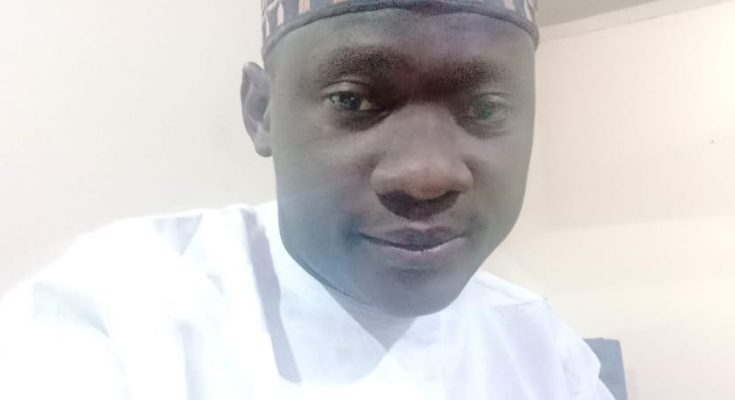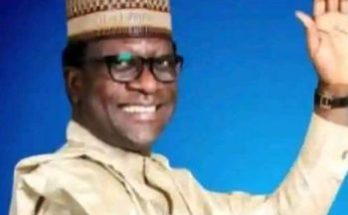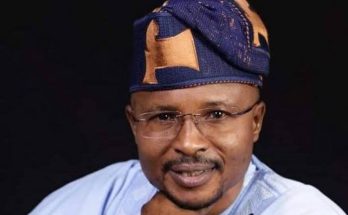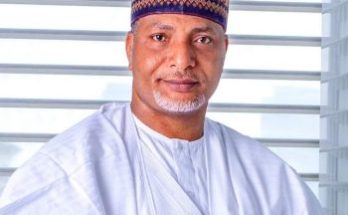If an Olympic gold medal were to be awarded to the country whose government excels at instituting meaningless probes, Nigeria would undoubtedly win it. No one would dare to contest it with us, by the way. It is already our birthright.
Our government is adept and prolific at raising ad hoc committees, task forces, and investigative panels to probe national issues, acts of graft by dubious public officials, and natural or man-made disasters, among others. However, we hardly ever see any positive outcomes from these investigations.
A fortnight ago, the media reported that only three out of 614 probes instituted by the federal government since 1999 were concluded. A newspaper wrote: “The Centre for Fiscal Transparency and Public Integrity has revealed that only three of 614 financial and anti-corruption probes initiated by successive governments have been concluded since the return of democracy in 1999.
“The centre made the disclosure in Abuja when it launched the Probes Monitor Portal in 2022, a comprehensive database of grand-corruption investigations made public since 1999. Executive Secretary of the centre, Umar Yakubu, noted that in Nigeria’s 25 years of democracy, numerous public sector financial and other corruption cases led to the formation of investigative panels, but their outcomes are rarely disclosed.
“This alarming discrepancy shows a significant accountability gap and questions the commitment of the National Assembly and other institutions to transparency and justice in the financial space,” Yakubu said.
“The executive director criticised the abandonment of these probes, saying, “It gives the impression of political theater designed to placate the masses temporarily without any genuine intention of addressing the underlying issues.”
“He also pointed out the financial implications, stressing that incomplete probes waste substantial resources and hinder economic growth and stability. Each investigation requires significant resources, and leaving them incomplete diverts funds from essential services like healthcare, education, and infrastructure, thereby hurting economic growth substantially.
“The lack of transparency allows corruption to continue unchecked, emboldening corrupt individuals due to the absence of consequences,” he explained.
“He added that, “The Centre’s initiative aims to enhance scrutiny and accountability by providing a clear and accessible record of all probes and their statuses, adding that “It is not enough to set up probes and then abandon them. Each investigation must be seen through to its conclusion, and the findings must be made public to restore faith in our institutions.”
“Prominent among the outstanding probes listed by the Centre were the Senate Committee on Banking, Insurance and Other Financial Institutions investigation on the procedures adopted by telecommunications giant, MTN Nigeria, the Minister of Trade and Investment, Dr. Okechukwu Enelamah, and four banks in repatriating the sum of $13.9 billion from Nigerian shores (2,791 days).
“The House of Representatives investigation of the Federal Ministry of Transportation and the Nigerian Maritime Administration and Safety Agency over a contract on behalf of Nigeria with a foreign private company, HLS International Limited, for the supply of certain security and surveillance equipment and systems worth $214,830,000, including $195,300,000 for the actual contract and an additional $19,530,000 (1,128 days).
“The Economic and Financial Crimes Commission (EFCC) investigation on ex-National Security Adviser, Sambo Dasuki, over $2 billion arms fraud (3,115 days)”. The list of wanton probes launched by the federal government between 1999 and now did not stop at the ones highlighted above.
In March, the federal government invited memoranda from the public when it began probing the 107 private universities established in the last 15 years. This followed an investigative report by Daily Nigerian journalist, Umar Audu, uncovering certificate racketeering in neighbouring Benin Republic and Togo.
An Inter-Ministerial Investigative Committee on Degree Certificate Milling set up by the Federal Government was to examine “whether or not private universities established in the last 15 years have in place prescribed facilities, appropriate management structure, adequate funding of programmes, requisite staff, and the nature of the staff – full-time, contract, adjunct, visiting and other types”.
Last month, the senate resolved to set up an ad hoc committee to probe projects abandoned across Nigeria by the federal government. Its resolution followed a motion sponsored by Jimoh Ibrahim, a senator representing Ondo South, who said there are about 11,856 mega projects that have been abandoned by the federal government.
In 2021, a national tabloid published a special report titled, “Abandoned reports: National Assembly’s long list of endless probes, loud hearings, dead results”. A part of the story reads: “On December 12, 2019, the House resolved to investigate Federal Government MDAs over fraudulent insurance policies.
“On December 17, 2019, the House started an investigation of the Nigerian Social Insurance Trust Fund over alleged illegal expenditures, especially the about N2.3bn spent on staff training without approval.
“On December 11, 2019, the House, based on a motion moved by Mr. Benjamin Bem, started an investigation of the decadence of infrastructure at the Apapa and Tin Can Island Ports and the roads leading to the ports in Lagos, causing Nigeria to lose N600bn revenue monthly.
“Also on November 27, 2019, the House started an investigation of the collapse of the Delta Steel Company built with $1.89bn. Also on November 21, 2019, the House began a probe into the ‘Turn Around Maintenance’ of the petroleum refineries in Port Harcourt, Warri, and Kaduna within four years, costing a total sum of $396.33m.
“On November 7, 2019, the House launched an investigation of the failure to refund $7bn withdrawn from Nigeria’s foreign reserves by the Central Bank of Nigeria in 2006, which was paid to banks and asset managers.
“Also in November 2019, the joint Senate and House Committee on Niger Delta Development Commission launched a probe of the Federal Government and 17 local and international oil companies over their indebtedness to the NDDC to the tune of N72bn and $73m, while the Federal Government alone owed NDDC N1.2tn.
“On October 25, 2019, the House queried the abandoned state of the contract awarded for the installation of closed circuit television cameras in the Federal Capital Territory, Abuja, for which $460m loan was obtained from the China-EXIM Bank.
“On September 25, 2019, the House resolved to investigate the debt portfolio of the Assets Management Corporation of Nigeria and the bad debtors on AMCON’s list, whose debts totaled about N5.4tn. On July 25, 2019, the House resolved to investigate the contracts awarded and payments made to contractors by the Federal Government to revive the power sector”.
In the face of our lawmakers’ and government’s laxity in actually uncovering the circumstances around disturbing events and corruption scandals, Nigeria continues to soar higher in the ranking of corrupt nations.
Our advice is that the federal government must cease expending substantial financial resources on the activities of its investigative committees. The country, at this time, lacks sufficient funds for developmental projects and for improving the welfare of the masses.
Thus, embarking on the extravagant exercise of conducting probes should be avoided. Furthermore, government should stop diverting Nigerians’ attention from the critical issues affecting them. These needless probing activities are nothing more than crass distractions, designed to elicit public commendation without aiming to achieve anything significantly tangible.
Mahmud, deputy editor of PRNigeria, writes via [email protected].




